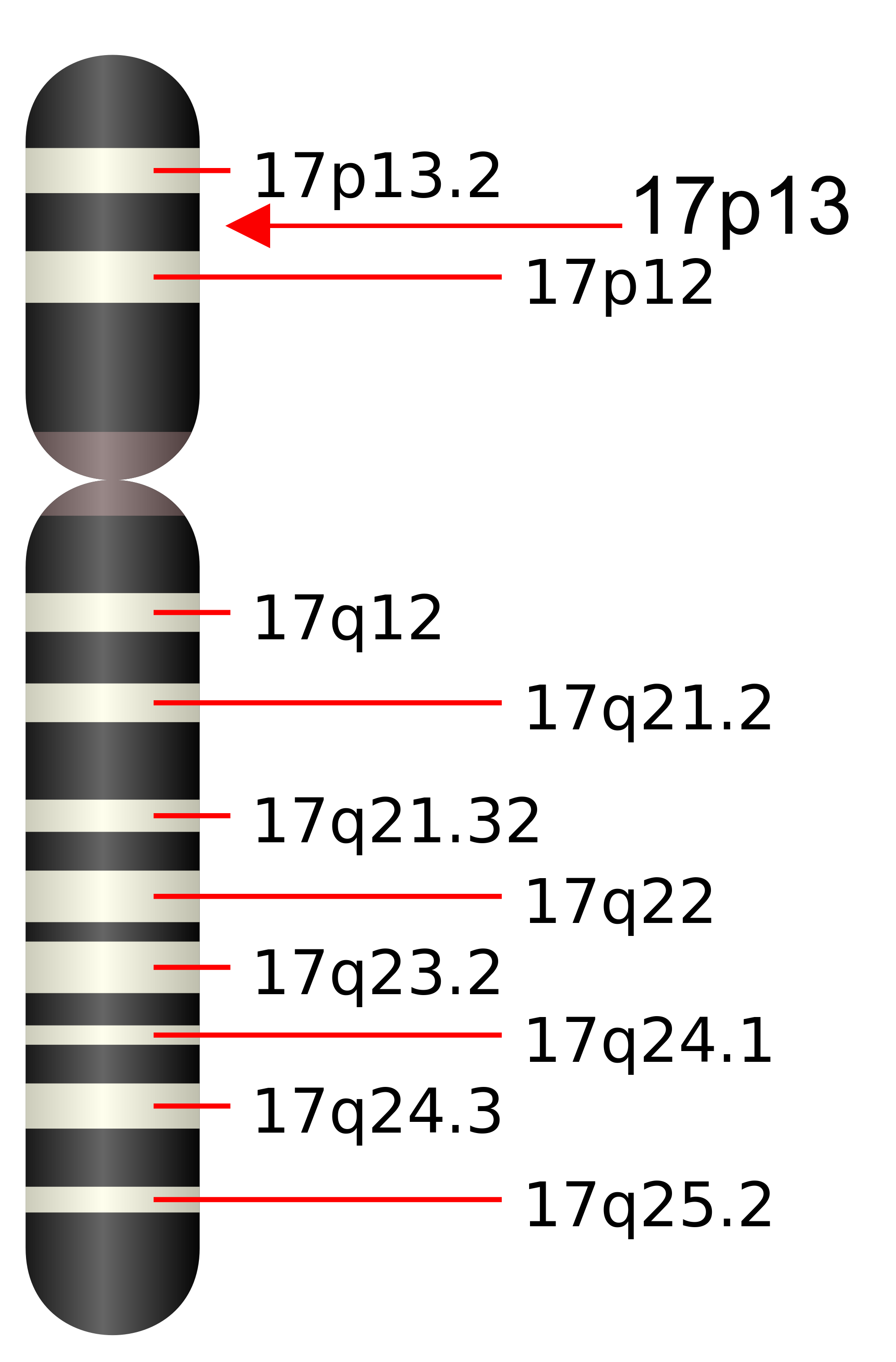-
- The cystinosis gene is designated CTNS, and it codes for the protein cystinosin.
Cystinosin is normally present in the membranes of lysosomes, which are cellular compartments which digest and
recycle cell components. When proteins are digested in lysosomes, they are broken down into amino acids, one of which is cystine.
Cystinosin is a transport protein that is needed to move cystine out of the lysosome.
-
- Cystnosin has 7 structural domains which extend across the lysosomal membrane, back and forth. It creates a channel which can transport cystine,
driven by the electrochemical gradient of H+ across the membrane.
-
- CTNS is localized to the short arm of chromosome 17 (17p13).
-
Landmark papers, mapping the cystinosis gene to chromosome 17:
-
A novel gene encoding an integral membrane protein is mutated in nephropathic cystinosis.
Nature Genetics. vol 18. April 1998. 319-324.
Margaret Town, Geneviève Jean, Stéphanie Cherqui, Marlene Attard, Lionel Forestier, Scott A. Whitmore,
David F. Callen, Oliver Gribouval, Michel Broyer, Gillian P. Bates, William van't Hoff and Corinne Antignac.
-
Linkage of the gene for cystinosis to markers on the short arm of
chromosome 17, Nature Genetics, vol 10. June 1995. 246-248.
The Cystinosis Collaborative Research Group (
Geraldine A. McDowell, William A. Gahl, Leah A. Stephenson, Jerry A. Schneider, Jean Weissenbach, Mihael H. Polymeropoulos,
Margaret M. Town, William van't Hoff, Martin Garrall, Christopher G. Mathew).
-
- Mutations in CTNS:
As of 2015, the number of mutations listed int he Human Genetic Mutation Database (hgmd.cf.ac.uk) include
51 missense/nonsense changes, 16 splicing mutations, 2 regulatory mutations, 24 small deletions, 11 small insertions, 4 small indels, 12 gross deletions.
One of the most common mutations is a deletion of approximately 57,000 bases (the so-called "common 57kb deletion").
|

|
